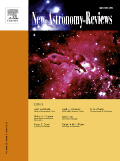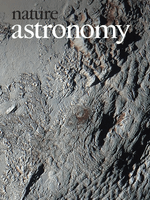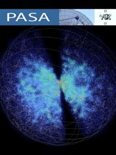
Bulgarian Astronomical Journal
metrics 2024
Exploring the Cosmos, One Study at a Time
Introduction
The Bulgarian Astronomical Journal, published by the BULGARIAN ACADEMY OF SCIENCES, INSTITUTE OF ASTRONOMY, serves as a vital platform for the dissemination of research in the field of Astronomy and Astrophysics. With the ISSN 1313-2709 and E-ISSN 1314-5592, this journal has been pivotal in showcasing original studies and advancements in astronomical sciences from 2014 and will continue to do so through 2025. Although categorized in Q4 within the ambit of Astronomy and Astrophysics, it provides essential insights and innovative findings, making significant contributions to the global academic community. Positioned in the lower quartile of Scopus rankings, recognized as #87 out of 90, it offers an opportunity for burgeoning researchers and seasoned professionals alike to engage with emerging ideas and trends in the discipline. While it currently does not feature an open access model, readers and contributors can anticipate a rich exchange of scientific knowledge that fosters collaboration within the astronomy community.
Metrics 2024
 0.11
0.11 0.30
0.30 0.30
0.30 6
6Metrics History
Rank 2024
Scopus
IF (Web Of Science)
JCI (Web Of Science)
Quartile History
Similar Journals

Open Astronomy
Transforming Astronomical Insights into Accessible Knowledge.Open Astronomy is a pioneering journal dedicated to the expansive field of astronomy and astrophysics, published by De Gruyter Poland Sp. z o.o. since 2016. This Open Access journal aims to facilitate the dissemination of high-quality research and stimulate scholarly dialogue among researchers, professionals, and students on a global scale. With a commitment to fostering the accessibility of academic knowledge, Open Astronomy has established itself within reputable categories, achieving a Q3 ranking in Astronomy and Astrophysics and a Q4 position in Space and Planetary Science for 2023. The journal also ranks 66th out of 90 in the Astronomy and Astrophysics category and 84th out of 104 in Space and Planetary Science according to Scopus metrics, indicating its growing influence in the scientific community. Based in Warsaw, Poland, Open Astronomy invites contributions that explore novel discoveries, innovative methodologies, and theoretical advances in the field, making it a vital resource for anyone passionate about the cosmos.

NEW ASTRONOMY REVIEWS
Exploring the Cosmos: Your Gateway to Cutting-Edge Astronomical InsightsNEW ASTRONOMY REVIEWS, published by Elsevier Science Ltd, stands as a premier journal in the field of Astronomy and Astrophysics as well as Space and Planetary Science. Established in 1998 and operating until 2024, this journal has consistently maintained a distinguished reputation, reflected in its Q1 categorization in both subject areas for 2023. It holds an impressive Scopus ranking, placed #6 out of 104 in Earth and Planetary Sciences and #7 out of 90 in Physics and Astronomy, showcasing its critical impact with a percentile rank of 94th and 92nd, respectively. Although not an open access journal, it provides vital insights and comprehensive reviews that are essential for researchers, professionals, and students eager to advance their knowledge in contemporary astronomical research and theories. With rigorous peer review and a commitment to high-quality publications, NEW ASTRONOMY REVIEWS is an indispensable resource for the scientific community striving to uncover the mysteries of the universe.

Nature Astronomy
Shaping the Future of Astrophysics: Discover, Learn, and Inspire.Nature Astronomy, published by NATURE PORTFOLIO, stands at the forefront of the field of Astronomy and Astrophysics. Since its inception in 2016, this esteemed journal has rapidly ascended to a prestigious position, achieving a Q1 ranking in the Astronomy and Astrophysics category and securing an impressive 6th place out of 90 journals in the Scopus rankings, placing it in the 93rd percentile. With a focus on disseminating pioneering research, Nature Astronomy provides a vital platform for the dissemination of high-quality, impactful findings across various aspects of astronomical science. Researchers, professionals, and students alike will find a wealth of knowledge and innovative perspectives within its pages, enabling them to stay ahead in a rapidly evolving field. Although it does not offer open access, the journal's commitment to excellence and its influence in shaping the future of astronomical research make it an indispensable resource for anyone serious about advancing their understanding of the cosmos.

Kinematics and Physics of Celestial Bodies
Charting the Pathways of Astronomical BodiesKinematics and Physics of Celestial Bodies is a prominent journal published by PLEIADES PUBLISHING INC, dedicated to the exploration and understanding of celestial mechanics and the physical properties of astronomical bodies. With an ISSN of 0884-5913 and an E-ISSN of 1934-8401, this journal has established itself as a resource for researchers in the fields of astronomy, astrophysics, and space science since its inception in 2009. The journal is indexed in Scopus, where it currently ranks in the fourth quartile for both Astronomy and Astrophysics and Space and Planetary Science, making it a valuable platform for scholarly discourse despite its ranking. Its scope encompasses a range of topics related to the kinematics and physical characteristics of celestial objects, aiming to facilitate a better understanding of their dynamics and interactions within the universe. Although it does not operate under an open access model, the journal provides essential insights and findings, catering to the academic needs of researchers, professionals, and students engaged in the study of the cosmos. The journal's commitment to advancing knowledge in the various aspects of celestial physics ultimately contributes to the broader scientific community's endeavors.

REVISTA MEXICANA DE ASTRONOMIA Y ASTROFISICA
Exploring the Depths of Space and TimeRevista Mexicana de Astronomía y Astrofísica, published by the Universidad Nacional Autónoma de México (INSTITUTO DE ASTRONOMÍA), is a prominent academic journal dedicated to advancing the knowledge and understanding of astronomy and astrophysics. As a Q3-ranked journal in both Astronomy and Astrophysics, and Space and Planetary Science in 2023, it serves as an invaluable platform for researchers and professionals within these fields. With an ISSN of 0185-1101, this journal seeks to foster innovative research and dialogue among scholars, presenting groundbreaking studies spanning from theoretical astrophysics to observational astronomy. Although it does not operate under an open-access model, the journal remains vital for its contributions to scientific literature from Mexico, with articles converging over several decades from 1996 to 2024. By offering insights into the latest findings and methodologies, Revista Mexicana de Astronomía y Astrofísica not only enhances the academic landscape but also inspires future generations of scientists and students passionate about unraveling the mysteries of the universe.

PUBLICATIONS OF THE ASTRONOMICAL SOCIETY OF AUSTRALIA
Advancing Cosmic Knowledge, One Publication at a Time.Publications of the Astronomical Society of Australia, published by Cambridge University Press, stands as a distinguished platform for advancing knowledge in the realms of Astronomy, Astrophysics, Space, and Planetary Science. Hemmed in the United Kingdom, this journal is recognized for its outstanding contributions, reflected in its status as a Q1 journal in both Astronomy and Astrophysics, along with Space and Planetary Science categories as of 2023. With a solid impact factor, it ranks impressively at #23 within its Scopus category, firmly placing it in the competitive 75th percentile. This publication facilitates open discourse and innovative research from its inception in 1996 to the present year of 2024, providing an essential resource for researchers, professionals, and students eager to deepen their understanding of cosmic phenomena. By embracing rigorous peer-review standards and a commitment to scholarly excellence, the journal not only contributes to the scientific community but also fosters the next generation of astronomical research.

Serbian Astronomical Journal
Pioneering Astronomical Research for a Global AudienceSerbian Astronomical Journal, published by the Astronomical Observatory Belgrade, serves as a significant platform for research and innovation within the field of astronomy and astrophysics. With an established publication history since 1992 and an Open Access model, the journal ensures that its cutting-edge research is accessible to a global audience. The journal is recognized for its contribution to the scientific community, evidenced by its solid position in the 2023 Scopus category quartiles, ranking Q3 in Astronomy and Astrophysics. This positions it among notable journals in the discipline, despite being at the 18th percentile of its category rankings. Researchers, professionals, and students will find in Serbian Astronomical Journal a valuable resource for disseminating findings, exploring new discoveries, and engaging with contemporary challenges in astronomy. As the journal continues to evolve, it remains dedicated to advancing the knowledge and understanding of the universe.

Journal of Astronomical History and Heritage
Connecting Celestial Discoveries with Human HistoryWelcome to the Journal of Astronomical History and Heritage, a distinguished publication that delves into the fascinating intersections between astronomical science and its historical context. Published by University Science & Technology China (USTC), this journal aims to promote a deeper understanding of how humanity's understanding of the cosmos has evolved over time. With a focused scope that encompasses the historical narratives of astronomy, this journal serves as a pivotal resource for researchers, professionals, and students in the fields of Astronomy, Astrophysics, and History. Although it is currently categorized in the fourth quartile for Astronomy and Astrophysics and in the second quartile for History, the journal holds an impressive rank in the arts and humanities category, reflecting its 88th percentile standing. The journal, which has aggregated notable works from 2019 to 2024, represents a unique platform for innovative scholarship and discussions related to our astronomical heritage. While offering limited access options, it strives to contribute significant knowledge to the field, fostering collaboration and exchange among scholars dedicated to understanding the past as we explore the universe.

ACTA ASTRONOMICA
Exploring the Cosmos: Where Knowledge Meets the StarsACTA ASTRONOMICA, the esteemed journal published by the COPERNICUS FOUNDATION POLISH ASTRONOMY, is a pivotal platform for disseminating significant advancements in the fields of Astronomy, Astrophysics, and Space Science. With an established history spanning from 1996 to 2023, this journal maintains a strong position in academia, evidenced by its Q2 ranking in both Astronomy and Astrophysics as well as Space and Planetary Science categories. Targeted at researchers, professionals, and students, ACTA ASTRONOMICA offers a comprehensive collection of articles that foster a deeper understanding of celestial phenomena, planetary exploration, and theoretical advancements in the universe. While it is not an open-access journal, its structured format caters to a global audience eager to engage with cutting-edge research. Notably, its Scopus rankings highlight its relevance, placing it in the 56th percentile for Astronomy and Astrophysics and the 44th percentile for Space and Planetary Science, ensuring that contributors are part of an influential community that is shaping the future of astronomical study.

ASTROPHYSICS
Pioneering Insights: Advancing the Frontiers of AstrophysicsASTROPHYSICS, published by Springer/Plenum Publishers, stands as a crucial platform for the dissemination of groundbreaking research in the field of Astronomy and Astrophysics. Established in 1965 and continuing its legacy until 2024, the journal highlights significant advancements, theoretical frameworks, and observational data that collectively push the boundaries of our understanding of the universe. Although currently categorized in the Q4 quartile for Astronomy and Astrophysics and holding a Scopus rank within the 17th percentile, ASTROPHYSICS remains dedicated to offering rigorous peer-reviewed content that is essential for researchers, professionals, and students alike. While it does not provide open access, the journal's accessibility through institutional subscriptions ensures a wide reach among the academic community, allowing it to address the rising curiosity surrounding cosmic phenomena and contribute meaningfully to ongoing scholarly discourse. For those seeking to engage with the latest findings and methodologies in astrophysics, ASTROPHYSICS continues to serve as an indispensable resource.